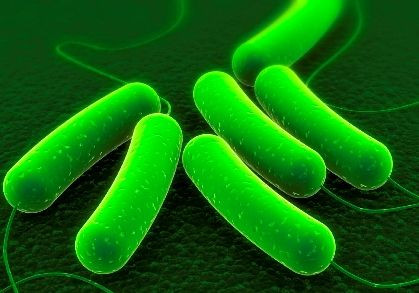Titanium Oxide Kills Superbugs, While Leaving Good Bacteria Untouched

Like Dorothy and her companions killing the “bad” witch of the Wizard of Oz, medical researchers have learned to preserve the “good” bacteria in Escherichia coli, also known as E. coli, while leaving the good to do its work.
Although bacterial infections may lead to severe illnesses and death, the body requires helpful bacteria and other microorganisms to aid digestion, buffer the immune system, and help guard against attack from their nefarious counterparts. While antibiotics provide life-preserving help, they also represent a blunt instrument, killing good bacteria too.
In the study, Korean researchers proved a technique allowing them to selectively eliminate harmful bacteria found in E. coli. The investigators combined the E. coli antibody with the catalyst titanium oxide, a compound with antibacterial properties that often speeds the rate of chemical reaction. With alacrity, the compound killed 90 percent of bad bacteria within 15 minutes of activation, leaving a few other measured bacteria in the study untouched. The study demonstrates a potential to combine other catalysts with antibodies specific to different types of bacteria for a treatment that would fight infection while leaving helper microorganisms undisturbed.
David Brown, chief executive of the Institution of Chemical Engineers, told Medical News Today, the work would likely be leveraged by chemical engineers working for pharmaceutical companies. Already used in a number of applications, the catalyst titanium oxide is well known in industry, he said.
"The research also has the potential to influence public health policy in response to continuing concerns about the over-prescription of antibiotics and resistance to antibiotics by sections of the population,” he said. “A more sophisticated management of harmful microorganisms and targeted use of antibiotics could overcome some of these problems as well as improving general health."
Some two million Americans are sickened every year by drug-resistant bacterial infections, known as “superbugs.” As many as 23,000 die. The study appeared in the journal Applied Catalyst B: Environmental.



























